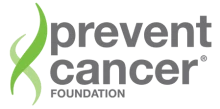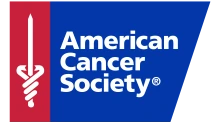Skin Cancer Institute research
From disease origins to prevention and treatment, unraveling the science of skin cancer requires innovative research. The University of Arizona Cancer Center has been a leader in skin cancer research for decades.
The Skin Cancer Institute team is always working to advance skin cancer prevention and early detection. Visit this page often for updates on new grants awarded and papers that have been published in skin cancer research.
The Skin Cancer Institute brings together nationally recognized scientists to collaborate in the discovery of:
- Cutting-edge chemical agents to prevent skin cancer and reverse sun damage
- New and better treatments for skin cancer
- Improved early detection techniques
- How skin cancer develops and spreads
- Ways to help people change unhealthy sun-related behavior
Research
Epidemiologic or population research focuses on the impact of disease on entire human populations instead of individuals. The research attempts to link human health effects to a cause. For example, the effects of environment and/or genetic factors on skin cancer within a population.
Behavioral research is the study of cognitive factors (mental processes of perceiving, thinking, and remembering), affective factors (emotion), attitudes, and beliefs that may or may not influence use of skin cancer prevention or sun protection behaviors. For example, previous studies conducted by team members have examined the behavioral responses to a diagnosis of skin cancer and factors such as risk perception and cancer worry that affect risk-reducing behaviors.
Basic research is the foundation of medical discovery, while translational research is the process of taking a discovery from the laboratory into the clinic. The goal of translational research is to produce results that directly benefit human health. Current areas of The University of Arizona Basic and Translational Research include:
- Skin biology - understanding how skin cancer develops
- Skin cell regulation - understanding molecular signals that control skin cells
- Photobiology - understanding how sunlight affects skin and skin cancer
Clinical trials are biomedical or health-related research studies conducted in humans, that study the use of specific therapies to treat or prevent skin cancers. These studies are guided by detailed protocols and are approved by an institutional or ethical review board.
Phase 1 and Phase 2 clinical trials of new topical drugs for skin cancer prevention, developed by SCI scientists and physicians are ongoing. Promising results from these studies will be used to further advance our drug and development efforts.
See a list of open clinical trials for melanoma and other skin cancers at The University of Arizona Cancer Center:
New grants

Prevent Cancer Foundation: Community Ambassadors for Skin Cancer Prevention
Awarded to The Skin Cancer Institute
4/2023
$25,000
This program will teach community members about skin cancer and ways to be sun safe, while also training them to deliver these messages to others within the community. The SCI’s goal is to “spread the word” on how dangerous sun exposure and skin cancer can be, and to create a healthier community.
The curriculum for the sun safety training already exists as a course at the University of Arizona known as Project SASS (Students Are Sun Safe). In 2010, experts in skin cancer, health education, and adolescent education developed this curriculum to raise awareness in youth and teens about the dangers of too much ultraviolet radiation (UVR).
To learn more about the program, or to schedule a sun safety program for your school, contact Dylan Miller at dylanmiller@arizona.edu(link sends e-mail).

AZ-Discovery Boost Grant (American Cancer Society): T cell sculpting of the neoantigen landscape in cutaneous squamous cell carcinoma
Awarded to Karen Hasting's lab
1/2024
$300,000
Arizonans are generally at high risk of developing skin cancer, including cutaneous squamous cell carcinoma (cSCC), given increased exposure to sunlight in warmer, sunnier climates. Sunlight causes mutations in human DNA, and these mutations result in mutated protein segments called neoantigens that are unique to cancer cells. Neoantigens can allow cancer cells to be recognized and destroyed by a type of immune cell called a T cell. Immunotherapies harness the ability of T cells to destroy cancer.
Understanding the neoantigens present in cSCC tumors and the ways that cSCC tumors avoid destruction by T cells will guide the development of more effective treatments for patients with advanced cSCC.
Recent publications
Adams ACo, Macy AMo, Kang P, Castro-Ochoa KFo, Wijeratne EMK, Xu Y, Liu MX, Charos A, Bosenberg MW, Gunatilaka AAL, Sertil AR, Hastings KT†; Physachenolide C induces complete regression of established murine melanoma tumors via apoptosis and cell cycle arrest, Translational Oncology; 2022 Jan; 15(1):101259. PMID: 34735896
Adams ACo, Borden ESo, Macy AM, Thomson N, Cui H, Gimbel M, Wilson MA, Buetow KH, Roe DJ, DiCaudo DJ, Homsi J, Hastings KT†; High GILT expression is associated with improved survival in metastatic melanoma patients treated with immune checkpoint inhibition, Cancers; 2022 Apr 28: 14(9):2200.
Borden ESo, Buetow KH, Wilson MA, Hastings KT†; Cancer neoantigens: challenges and future directions for prediction, prioritization and validation, Frontiers in Oncology; 2022 Mar 3; 12:836821. PMID: 35311072
Borden ESo, Ghafoor S, Buetow KH, LaFleur B, Wilson MA, Hastings KT†; NeoScore integrates characteristics of the neoantigen:MHC class I interaction and expression to accurately prioritize immunogenic neoantigens, Journal of Immunology; 2022 Apr 1: 208(7):1813-1827. PMID: 35304420
Borengasser K, Rookwood AC, Solheim JC, Godfrey M, Hastings KT, King KM, Butler H, Abney M, Smith R, Tamayo L, Idoate RE; Collective re-storying of mentee and mentor experiences in a cancer research education program for American Indian and Alaska Native students, Journal of STEM Outreach; 2022 Aug: 5(2).
Fernandez JM, Poling KL, Desai AD, Koblinski JE, Borgstrom M, Abraham I, Behbahani S. Primary cutaneous oncology in Blacks: an analysis of 2,466 cases from the National Cancer Database 2004-2018. Pigment Cell and Melanoma Research 2023;36:42-52.
Halloush S, Alkhatib NS, Almutairi AR, Calamia M, Halawah H, Obeng-Kusi M, Hoyle M, Rashdan O, Koeller J, Abraham I. Economic evaluation of three BRAF+MEK inhibitors for the treatment of advanced unresectable melanoma with BRAF mutation from a US payer perspective. Annals of Pharmacotherapy 2023;57:1016-1024.
Macy AMo, Hermann LMo, Adams ACo, Hastings KT†. MHC class II in the tumor microenvironment: functions of non-professional antigen presenting cells, Current Opinion in Immunology; 2023 Apr 30: 83:102330.
Obeng-Kusi M, Abraham I. Melanoma epidemiology: pivoting to low- and middle-income countries. JAMA Dermatology 2022;158:489-491.



